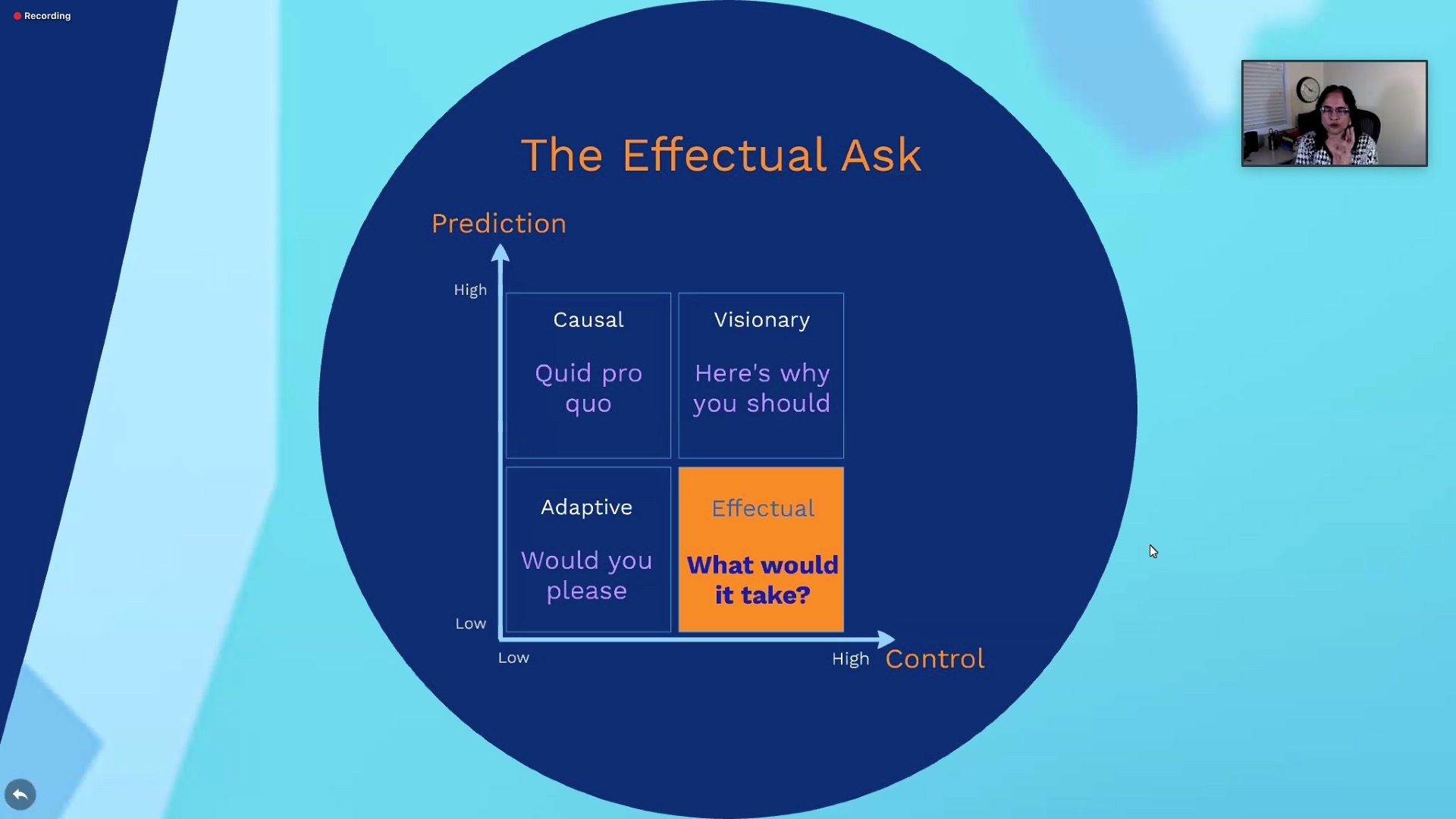I had introduced the concept of effectuation few days back in one of my earlier blogs. For your reference I am attaching the blog link here.
Today I will be discussing about one fo the concepts in effectuation theory - the effectual ask. When we want something from someone, especially for an entrepreneurial venture, generally we take the following 3 approaches:
- Visionary - We paint the picture of the goal we want to achieve, tell the other person our vision for the world - and expect him to align with the vision and hence, help us in what we are asking for. The only problem with this approach is that: we hope that the other person agrees with our vision. What if he doesn't? In a way, this approach depends a lot on our prediction of what future the other person will resonate with. And hence, there is a high risk of failure with this approach.
- Adaptive - This is a person where we just request a person to help us, hoping that because of his kindness or sympathy - he will agree. This is a very weak approach, since we don't have much control on what the outcome of the ask would be.
- Causal - This is the most common approach which people take. They want to ask for a favor from someone, in return for doing something for them. Quid pro quo. This approach is generally a decent approach, if we are able to accurately know what the other person will respond to. Though, more often then not, it is difficult to figure out what the other person is really interested in. What if our offer is not interesting to other person? And many a times, we don't even make the ask - as we don't know what quid pro quo should we offer. This is certainly not an ideal scenario.
 The Effectual Ask
Effectuation theory asks us to get rid of all these shackles. Rather than trying to figure out what the other person want or just appealing to their sense of kindness, why not just ask them what would it take for them to help us. This is called as the Effectual ask.
The Effectual Ask
Effectuation theory asks us to get rid of all these shackles. Rather than trying to figure out what the other person want or just appealing to their sense of kindness, why not just ask them what would it take for them to help us. This is called as the Effectual ask.
This makes the barrier to making an ask very low. You just have to go to the other person, tell them what you want and just ask them what would it take for them? You don't have to figure out the right quid pro quo. You don't have to make a pleading request. You just have to ask. Agreed, that this is not as simple as it sounds - but when you don't have many elements known, I think it is a good strategy. How would you know, what the other person really wants.
What this does, interestingly is that it lower the bar to asking, and in words of Steve Jobs, may times all you have to do is just ask what you want. Very people actually do that.
Here's a video of Steve talking about this: